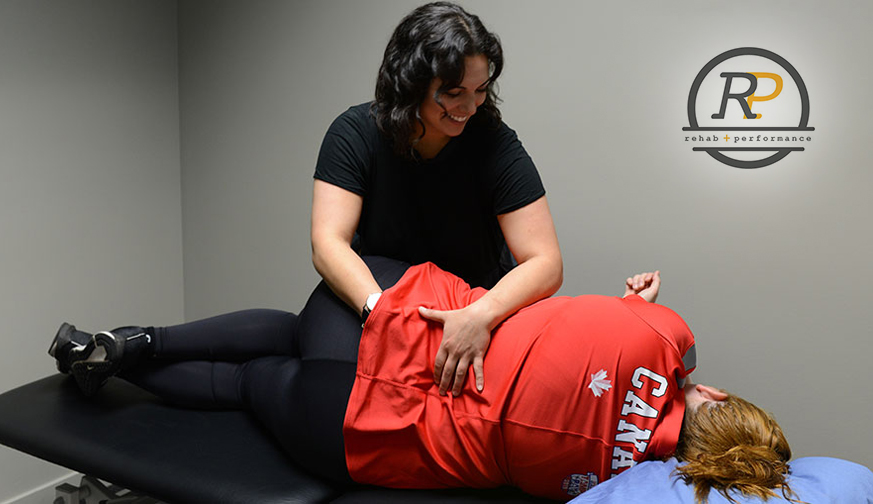Physio clinic dedicated to helping injured veterans
By Lookout on Aug 17, 2019 with Comments 1
Peter Mallett, Staff Writer ~
A former sailor says a one-of-a-kind physiotherapy clinic now operating on the West Shore has been the perfect medicine for him, and others like him.
Petty Officer Second Class (Retired) Sean Wieler had a 23-year career in the Canadian Armed Forces (CAF). He served aboard multiple warships in Canada’s navy and was deployed to Bosnia as a member of Princess Patricia’s Canadian Light Infantry in 1994 and 1995. Then, hip and neck injuries related to a workplace fall ended his military career. He was also diagnosed with Post-Traumatic Stress Disorder (PTSD) in 2010.
After battling both mental and physical injuries for several years, he was introduced to Veterans Rehab and Performance in Langford earlier this year. The Rehab and Performance Reactivation Center opened in early 2019. Owned by Victoria’s Integrated Rehab Performance Ltd., the clinic operates out of a studio in a small three-unit plaza on Jacklin Road. Co-owners Steven Inglefield and Tawanda Asher Adaarewa say the clinic is the only facility dedicated exclusively to the recovery of injured veterans and first responders in the Province of British Columbia, and, to their knowledge, all of Canada.
Weiler says he was uncertain Rehab and Performance could free him from the circle of depression and inactivity that had transformed him into a person he barely recognized, but he was enrolled and went through the process.
The Reactivation Program has multiple components including education on the body’s pain system, graded physical activity, graded exposure to manual therapy, trauma-sensitive yoga, and discharge planning assistance. Patients can spend two to five days a week at the clinic for approximately one to two hours a day, with the treatment program lasting between six and 12 weeks. Each program is specifically designed and geared towards an individual’s needs and personal recovery goals.
“Our reactivation program takes a holistic approach and focuses on three main areas: bio, which is straight physiotherapy, psycho, which emphasizes the mental component, and social, how interacting effects quality of life,” explains Inglefield.
Since completing the program, Wieler is a changed man. He now enjoys a more positive and forward-thinking outlook on life. He credits the program for this, which greatly contrasts to how he felt at doctors, clinics, or support centres he visited, which was like a number, he says.
“The small group setting [of the Reactivation Program] has been crucial to my success. Through the camaraderie and interaction with other former soldiers, I quickly realized I am not the only one going through this, which in the end has made a huge difference in my confidence and self-awareness,” said Wieler.
It took Adaarewa and Inglefield two years developing their approach to helping veterans and first responders reclaim their physical health.
“When you are working with a client who has spent 20 or 30 years in the military, for us to be effective we need to put our degrees and history on the sideline and realize we are just two people talking,” said Adaarewa. “We have to realize that we can learn from each other. Once that is recognized, we can get on a journey that leads to healing.”
Because Inglefield and Adaarewa took the time to learn from veterans, and about their special needs, their team can deliver programs that focus only on veterans.
An example of this symbiotic learning approach is PO2 (Retired) Allan Kobayashi. A 21-year Canadian Forces veteran, Kobayashi is a Reactivation Program team member who suffers from PTSD.
Candid about his experience both as an infanteer and marine engineer, Kobayashi wanted to be involved in the program after learning who it is for and what it aims to do. His vocational rehab was in massage therapy and he has been volunteering his services as a bodyworker until he completes his exams, earning his credentials as an RMT.
Both owners say learning about his experience with PTSD, and from other injured veterans, has been key to their understanding of the disorder and how the program can continue to improve to meet veterans’ needs.
There are approximately 7,000 veterans living in the Greater Victoria Area, and many of those men and women have work-related injuries because of the nature of the jobs they did.
For more information about Rehab Performance programs and funding options available visit their website: veteranrehabandperform.com
Filed Under: Top Stories
About the Author:







I olso found the best help for my Back with the expertise of Sabine
J’aussi trouvé l’aide précieuse avec l’expertise de Sabine
Merci